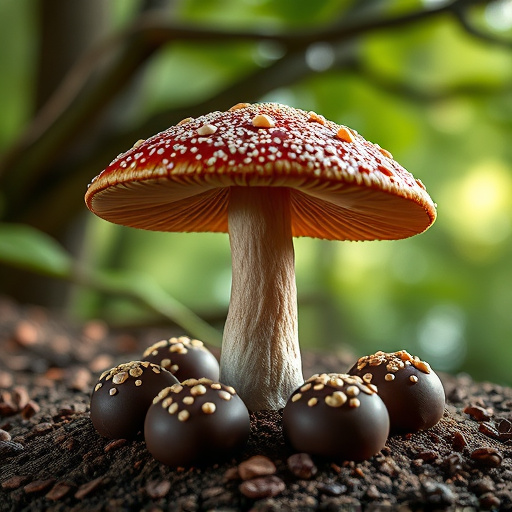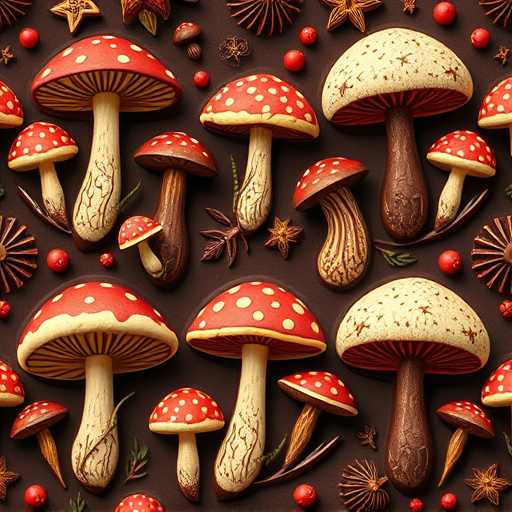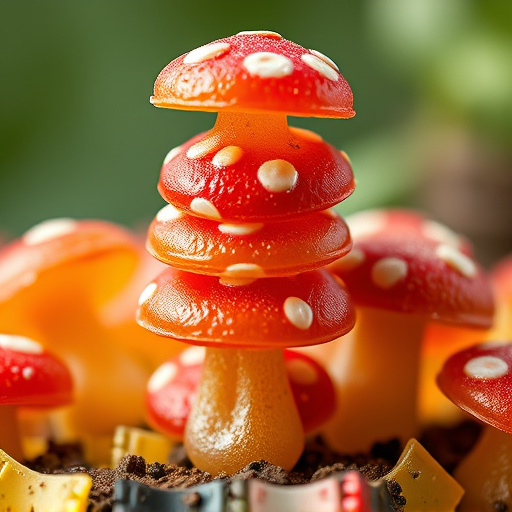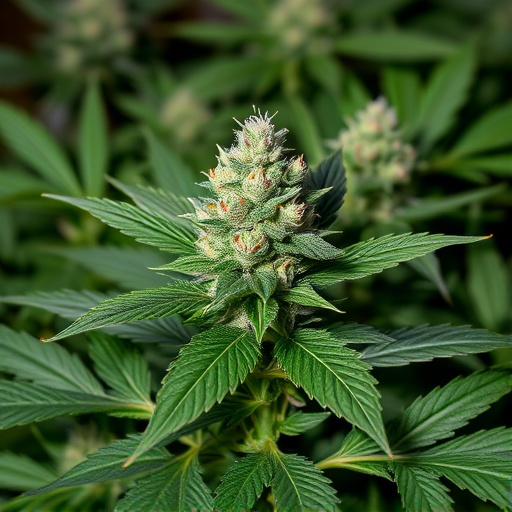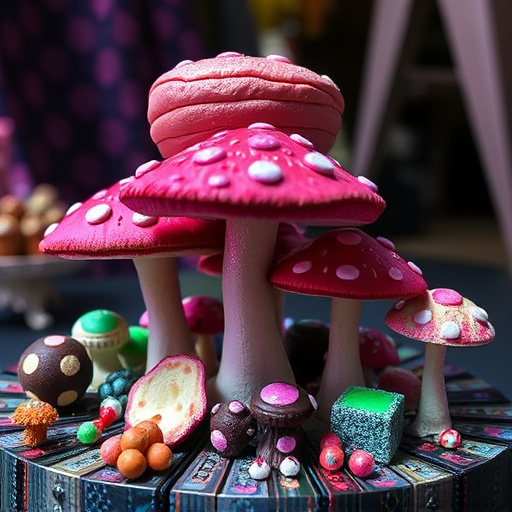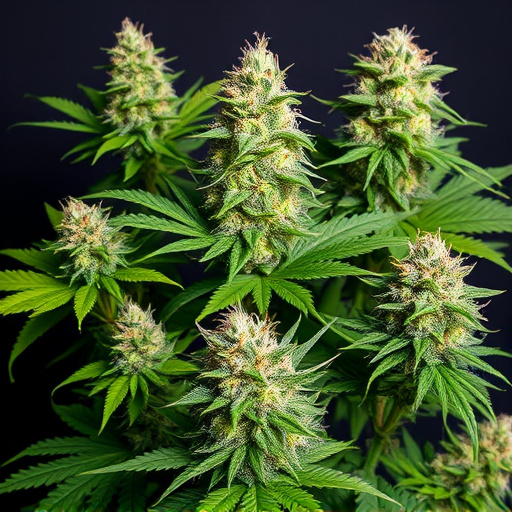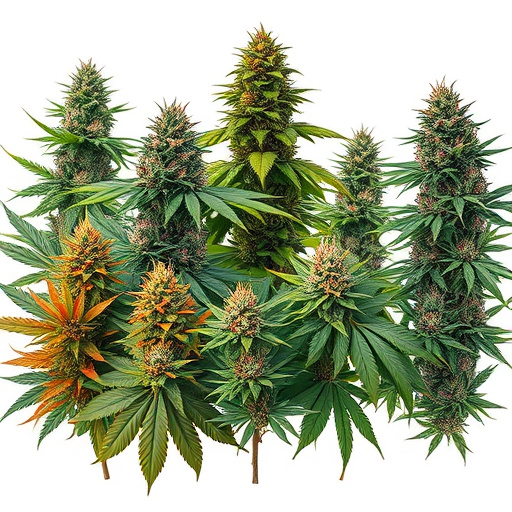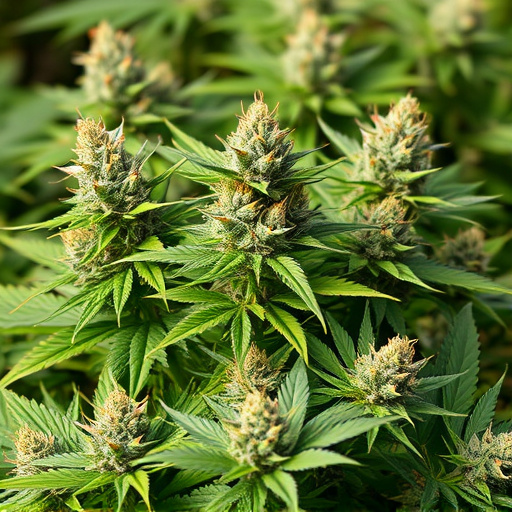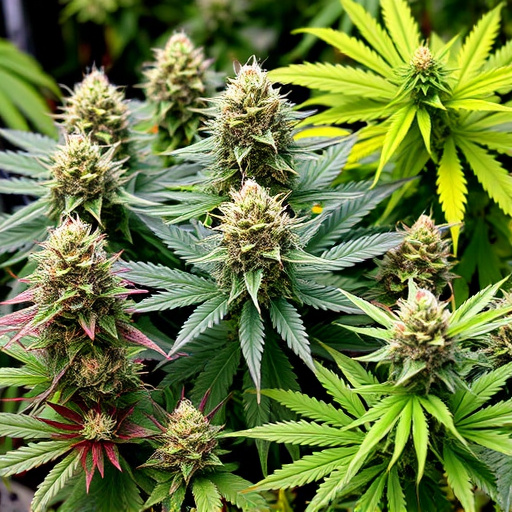Cannabis flower's mood and stress effects stem from its cannabinoids, THC and CBD. THC offers relaxation and euphoria but may cause anxiety, while non-psychoactive CBD stabilizes moods and reduces anxiety/depression. Exploring various cannabis strains allows individuals to tailor their experiences for specific needs, as strain compositions differ in THC, CBD, and terpenes levels. Factors like dose, method of consumption, and tolerance influence outcomes, making strain exploration crucial for understanding one's relationship with cannabis. Stress reduction strategies incorporating cannabis alongside traditional techniques offer a holistic approach to well-being.
Cannabis flower, with its diverse compounds and profiles, has long been associated with mood alterations and stress reduction. This article delves into the science behind these effects, focusing on how cannabinoids like THC and CBD interact with our bodies’ endocannabinoid systems to regulate mood. We explore the varied psychosocial impacts of different cannabis strains, providing insights into their unique therapeutic potential. Additionally, we discuss stress reduction strategies, positioning cannabis as a complementary approach for managing mental well-being, highlighting the importance of understanding its diverse strains.
- Understanding the Cannabinoids: THC and CBD Roles in Mood Regulation
- Exploring Different Cannabis Strains and Their Psychosocial Effects
- Stress Reduction Strategies: Incorporating Cannabis as a Complementary Approach
Understanding the Cannabinoids: THC and CBD Roles in Mood Regulation
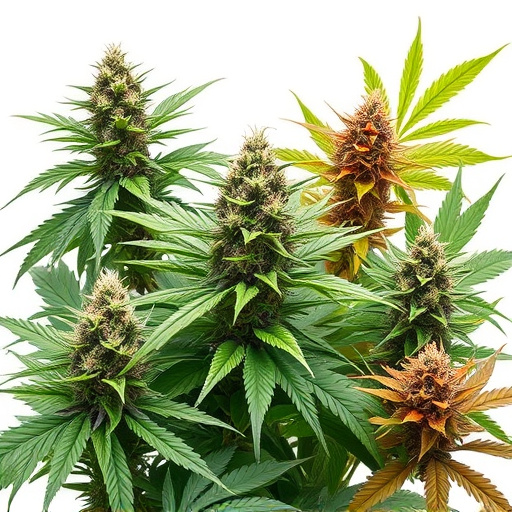
Cannabis flower’s impact on mood and stress is largely attributed to its cannabinoids, namely THC (Tetrahydrocannabinol) and CBD (Cannabidiol). These compounds interact with the body’s endocannabinoid system, playing a crucial role in regulating mood and perceiving pain. THC is known for its psychoactive effects, influencing serotonin levels and potentially enhancing feelings of relaxation and euphoria. Different cannabis strains vary in their THC content, leading to diverse experiences—from calming and sedating to energizing and creative.
In contrast, CBD does not produce psychoactive effects but has gained attention for its potential mood-stabilizing properties. Research suggests that CBD interacts with serotonin receptors, which are linked to regulating mood, anxiety, and depression. Additionally, CBD’s anti-inflammatory properties may alleviate stress-related symptoms by reducing cortisol levels. Exploring the interplay between these cannabinoids in various different cannabis strains can offer tailored options for managing mood and stress, catering to individual preferences and needs.
Exploring Different Cannabis Strains and Their Psychosocial Effects
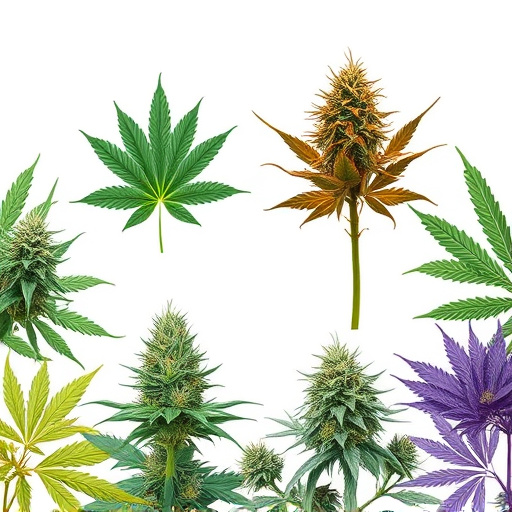
Cannabis has gained significant attention for its diverse effects on mood and stress, largely attributed to the various chemical compounds present in different cannabis strains. Each strain carries a unique combination of tetrahydrocannabinol (THC) and cannabidiol (CBD), two primary compounds known for their psychosocial impacts. For instance, high-THC strains are often associated with heightened euphoria and relaxation but may also induce anxiety or paranoia in some users. On the other hand, CBD-rich strains are gaining popularity for their potential to promote calmness without the psychoactive effects of THC.
Exploring different cannabis strains allows individuals to tailor their experience based on desired outcomes. Those seeking stress relief might opt for strains known for their relaxing properties, while those looking to enhance creativity or social interaction could choose varieties that stimulate mental clarity and mood elevation. The psychosocial effects of cannabis are influenced by factors such as dose, method of consumption, and individual tolerance, making the exploration of different cannabis strains a crucial aspect of understanding one’s relationship with this plant.
Stress Reduction Strategies: Incorporating Cannabis as a Complementary Approach
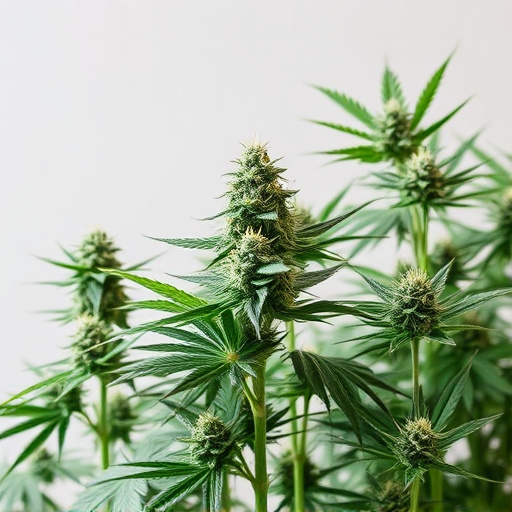
Stress Reduction Strategies: Incorporating Cannabis as a Complementary Approach
In today’s fast-paced world, managing stress effectively is paramount to maintaining mental and physical well-being. While traditional stress reduction strategies like exercise, meditation, and therapy remain essential, incorporating cannabis as a complementary approach has gained traction. Different cannabis strains offer diverse profiles of cannabinoids, such as THC and CBD, which can interact with the body’s endocannabinoid system to modulate mood, reduce anxiety, and alleviate symptoms associated with stress.
Exploring various cannabis strains, each with unique terpene compositions, allows individuals to find a fit that best suits their needs. For example, Indica strains are often favored for their calming effects, making them suitable for unwinding after a stressful day. Conversely, Sativa varieties are known for their uplifting and energizing properties, which can be beneficial for managing stress-related fatigue while promoting focus and creativity. By combining these natural tools with proven stress management techniques, individuals can cultivate a holistic approach to well-being.
Cannabis flower’s impact on mood and stress reduction is multifaceted, with various factors contributing to individual experiences. Understanding the interplay between cannabinoids like THC and CBD is key to navigating the effects. Different cannabis strains exhibit unique psychosocial impacts, offering a range of options for those seeking relief. Incorporating cannabis as a complementary approach alongside established stress reduction strategies can provide a holistic solution for managing stress and enhancing overall well-being. Exploring these options allows individuals to make informed choices tailored to their specific needs.
